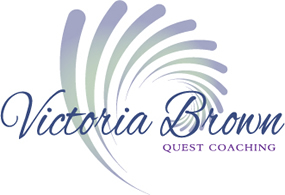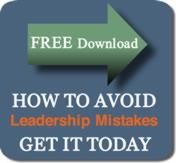The Irony of Energy Management
Recently, I spoke at the International Council of Shopping Centers in Whistler. For the talk, I had been researching energy and time management. It was a busy year launching two websites, doing corporate work and seeing individual clients.
I had learned that we have a natural cycle of energy every 90-120 minutes. Our body moves through deeper stages of sleep in these cycles and through different stages of effectiveness when we are awake.
When we are awake, signals that show we need renewal (every 90-120 minutes) include a desire to yawn, stretch, hunger pangs, increased tension, difficulty concentrating, having an inclination to procrastinate or fantasize, and a higher incidence of mistakes.
The research to prove this was quite extensive in the book The Power Of Full Engagement, yet I struggled to put the practices in place. I scheduled a renewal break mid morning and mid afternoon. The reminders would go off and I would think “I’ll just finish this project I’m working on.”
By not taking the time to recharge, change channels and move, my back started to seize up. Ironically, I learned that by not investing 5-15 minutes to recharge I was now spending 5-15 hours of back rehabilitation with massage therapists, yoga back classes and back therapy.
When we were in our 20’s we thought we were invincible with mantras like “I’ll sleep when I die.” In our 30’s, we became focused in making serious career strides and being upwardly mobile was more important than spending too much time on self care. Then as some of us headed into our 40s, we adopted some healthy habits and yet we seemed to easily slip into weekend warriors that included overdoing exercise and sometimes alcohol – with that “work hard-play hard “mantra. As we get age and our body starts to talk back to us, we complain and say “getting older isn’t fun.” We see our friends and family struggle with illnesses and we become acutely aware of aches, pains and symptoms that mimic those from diseases like the dreaded big “C.”
Spending more energy than recovering leads to break down, burnout, loss of passion, disease and premature death. We flat-line mentally and emotionally without sufficient recovery.
80% of North American adults, at some point in their lives, suffer from Adrenal Fatigue Syndrome which leads to other serious diseases.
Cardiovascular diseases kill more people each year (in high, middle- and low-income countries) than any others.
When we deplete our energy, our thought process is weakened. We fall into old patterns, lose perspective on our values and forget we can make conscious choices to live how we really want to live.
Wanting more energy and effectiveness led me to search sources that could help.
The four key energy management principles (from The Power Of Full Engagement) are met when we are being:
Physically energized – fueled by nutrition, water, oxygen and exercise
Emotionally connected-manage emotions skillfully in the service of high positive energy.
Mentally focused – operating with focus and realistic optimism (seeing the world as it is but working positively toward a desired outcome)
Spiritually connected to our values
Physically Energized
Studies have proven eating 5-6 highly nutritious small meals a day that are low on the glycemic index delivers a steady supply of energy.
Good snacks are nuts, sunflower seeds, fruit, or half a typical energy bar.
Since we spend less energy at the end of the day, we need to eat more calories at the beginning of the day.
The other most important regulator of energy other than eating is breathing.
We breathe shallower than we need to and when we are anxious or afraid, we breathe faster and not as deep in reaction to a potential threat.
Yoga and Pilates show us the power of breath in order to relax, lower arousal and quite the body, mind and emotions.
Slow, deep abdominal breaths provide an antidote to anger and anxiety and is a source of energy alertness and focus.
Interval training allows us to build physical capacity and learn to recover efficiently. Workouts help keep us focused, patient, creative and alert, as well as, assist in the management of emotions and commitment.
Drinking water is the most undervalued source of physical energy renewal. 8 glasses a day will increase our performance.
Emotionally Connected
Physical and emotional energy are inextricably connected. If we are constantly spending emotional energy without renewal, we become run down emotionally.
We can build positive emotional strength by conquering negative emotions like insecurity and low self esteem by refocusing our perspective on our values and building positive energy rituals around them rather than worrying about what others think of us.
A positive energy ritual is a carefully defined, structured behavior we put in place to insure we develop a habit rather than rely on our conscious mind since 5 % of our behavior is consciously self directed and 95% of our behavior occurs automatically or in reaction to a demand or anxiety.
We build more positive emotions when we do an activity that is enjoyable, fulfilling and affirming.
Pleasure satisfies us and is a critical ingredient to sustained performance. Whether it’s playing an instrument, singing, playing a sport, reading a book, sex or quiet time – the quality of emotional renewal is important.
Mentally Focused
Thinking takes up a great deal of energy. The brain makes up only 2 percent of the body’s weight, but requires 25% of its oxygen. Without intermittent recovery we make mistakes, are less creative, and fail to take as many risks. In Michael Gelb’s book “How to Think Like Leonardo da Vinci, he asked “Where are you when you get your best ideas?” to thousands of people. Answers included “in the shower”, “walking in nature”, and “listening to music.” “Almost no one claimed to get their best ideas at work. Renewal involves switching channels and giving our minds and focus a rest to recover. Get out, take a break and get creative.
Spiritually Connected to Our Values
Values provide the purpose and motivation behind our ability to make change and what it means to be true to ourself. Life can be much easier and fulfilling when you acknowledge your values and when you make decisions and plans that honor them.
If you value family, but you have to be away for long periods of time in your job, you will feel internal stress and conflict.
If you don’t value competition, and you work in a highly competitive sales environment, you are likely to lack satisfaction in your job.
In coaching, we spend time on values to make sure you know your true values rather than those you think you should have.
What factors are essential to your happiness, pride and fulfillment? If you had food, shelter and community handled, what are the non-negotiables you could not live without in order to live a fulfilled life.
Behavior is driven by what’s important to us. If we become aware of our behavior that drives success or prevents us from success we can unlock the potential of greater success and fulfillment.
Adopting positive energy rituals, having a vision, and using our values as our guiding light along the way will help us live meaningful lives and increase our ability to operate with optimum performance more consistently.









